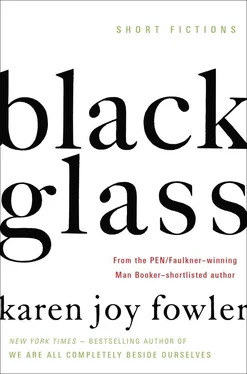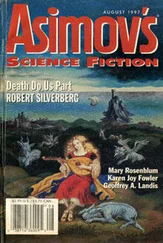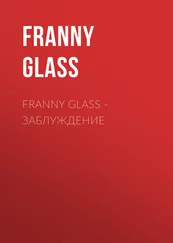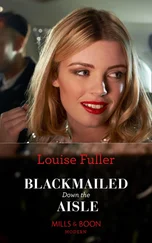What appealed to me most about the music box was not the snow or the unicorn but the size. It was a little world, all enclosed, and I could imagine it as a real place, a place I could go. A little winter. There was an aquarium in the lobby of my hotel, and I had a similar reaction to it. A little piece of ocean there, in the dry land of the lobby. Sometimes we can find a smaller world where we can live, inside the bigger world where we cannot.
Otherwise the store was filled with items tied in to The Lion King. Less enchanting items to my mind — why is it that children always side with the aristocracy? Little royalists, each and every one of us, until we grow up and find ourselves in the cubicle or the scullery. And even then there’s a sense of injustice about it all. Someone belongs there, but surely not us.
I’m going to tell you a secret, something I have never told anyone before. I took an oath when I was seventeen years old and have never broken it, although I cannot, in general, be trusted with secrets and usually try to warn people of this before they confide in me. But the oath was about the man who died, my old neighbor, and so I am no longer bound to it. The secret takes the form of a story.
I should warn you that parts of the story will be hard to believe. Parts of it are not much to my credit, but I don’t suppose you’ll have trouble believing those. It’s a big story, and this is just a small piece of it, my piece, which ends with my mother’s letter and The Hague and the unicorn music box.
It begins in Bloomington, Indiana, the year I turned ten. It snowed early and often that year. My friend Bobby and I built caves of snow, choirs of snowmen, and bridges that collapsed if you ever tried to actually walk them.
We had a neighbor who lived next door to me and across the street from Bobby. His name was John McBean. Until that year McBean had been a figure of almost no interest to us. He didn’t care for children much, and why should he? Behind his back we called him Rudolph, because he had a large purplish nose, and cold weather whitened the rest of his face into paste so his nose stood out in startling contrast. He had no wife, no family that we were aware of. People used to pity that back then. He seemed to us quite an old man, grandfather age, but we were children, what did we know? Even now I have no idea what he did for a living. He was retired when I knew him, but I have no idea of what he was retired from. Work, such as our fathers did, was nothing very interesting, nothing to speculate on. We thought the name McBean rather funny, and then he was quite the skinflint, which struck us all, even our parents, as delightful, since he actually was Scottish. It gave rise to many jokes, limp, in retrospect, but pretty rich back then.
One afternoon that year Mr. McBean slipped in his icy yard. He went down with a roar. My father ran out to him, but as my father was helping him up, McBean tried to hit him in the chin. My father came home much amused. “He said I was a British spy,” my father told my mother.
“You devil,” she said. She kissed him.
He kissed her back. “It had something to do with Bonnie Prince Charlie. He wants to see a Stuart on the throne of England. He seemed to think I was preventing it.”
As luck would have it, this was also the year that Disney ran a television episode on the Great Pretender. I have a vague picture in my mind of a British actor — the same one who appeared with Hayley Mills in The Moon-Spinners. Whatever happened to him, whoever he was?
So Bobby and I gave up the ever popular game of World War II and began instead, for a brief period, to play at being Jacobites. The struggle for the throne of England involved less direct confrontation, fewer sound effects, and less running about. It was a game of stealth, of hiding and escaping, altogether a more adult activity.
It was my idea to break into the McBean cellar as a covert operation on behalf of the prince. I was interested in the cellar, having begun to note how often and at what odd hours McBean went down there. The cellar window could be seen from my bedroom. Once I rose late at night, and in the short time I watched, the light went on and off three times. It seemed a signal. I told Bobby that Mr. McBean might be holding the prince captive down there and that we should go and see. This plan added a real sense of danger to our imaginary game, without, we thought, actually putting us into peril.
The cellar door was set at an incline, and such were the times that it shocked us to try it and find it locked. Bobby thought he could fit through the little window, whose latch could be lifted with a pencil. If he couldn’t, I certainly could, though I was desperately hoping it wouldn’t come to that — already at age ten I was more of an idea person. Bobby had the spirit. So I offered to go around the front and distract Mr. McBean long enough for Bobby to try the window. I believe that I said he shouldn’t actually enter, that we would save that for a time when McBean was away. That’s the way I remember it, my saying that.
And I remember that it had just snowed again, a fresh white powder and a north wind, so the snow blew off the trees as if it were still coming down. It was bright, one of those paradoxical days of sun and ice, and so much light everything was drowned in it so you stumbled about as if there were no light at all. My scarf was iced with breath and my footprints were as large as a man’s. I knocked at the front door, but my mittens muffled the sound. It took several tries and much pounding before Mr. McBean answered, too long to be accounted for simply by the mittens. When he did answer, he did it without opening the door.
“Go on with you,” he said. “This is not a good time.”
“Would you like your walk shoveled?” I asked him.
“A slip of a girl like you? You couldn’t even lift the shovel.” I imagine there is a tone, an expression, that would make this response affectionate, but Mr. McBean affected neither. He opened the door enough to tower over me with his blue nose, his gluey face, and the clenched set of his mouth.
“Bobby would help me. Thirty cents.”
“Thirty cents! And that’s the idlest boy God ever created. Thirty cents?”
“Since it’s to be split. Fifteen cents each.”
The door was closing again.
“Twenty cents.”
“I’ve been shoveling my own walk long enough. No reason to stop.”
The door clicked shut. The whole exchange had taken less than a minute. I stood undecidedly at the door for another minute, then stepped off the porch, into the yard. I walked around the back. I got there just in time to see the cellar light go on. The window was open. Bobby was gone.
I stood outside, but there was a wind, as I’ve said, and I couldn’t hear and it was so bright outside and so dim within, I could hardly see. I knew that Bobby was inside, because there were no footprints leading away but my own. I had looked through the window on other occasions so I knew the light was a single bulb, hanging by its neck like a turnip, and that there were many objects between me and it, old and broken furniture, rusted tools, lawn mowers and rakes, boxes piled into stairs. I waited. I think I waited a very long time. The light went out. I waited some more. I moved to a tree, using it as a windbreak until finally it was clear there was no point in waiting any longer. Then I ran home, my face stinging with cold and tears, into our living room, where my mother pulled off my stiff scarf and rubbed my hands until the pins came into them. She made me cocoa with marshmallows. I would like you to believe that the next few hours were a very bad time for me, that I suffered a good deal more than Bobby did.
That case being so hard to make persuasively, I will tell you instead what was happening to him.
Читать дальше












